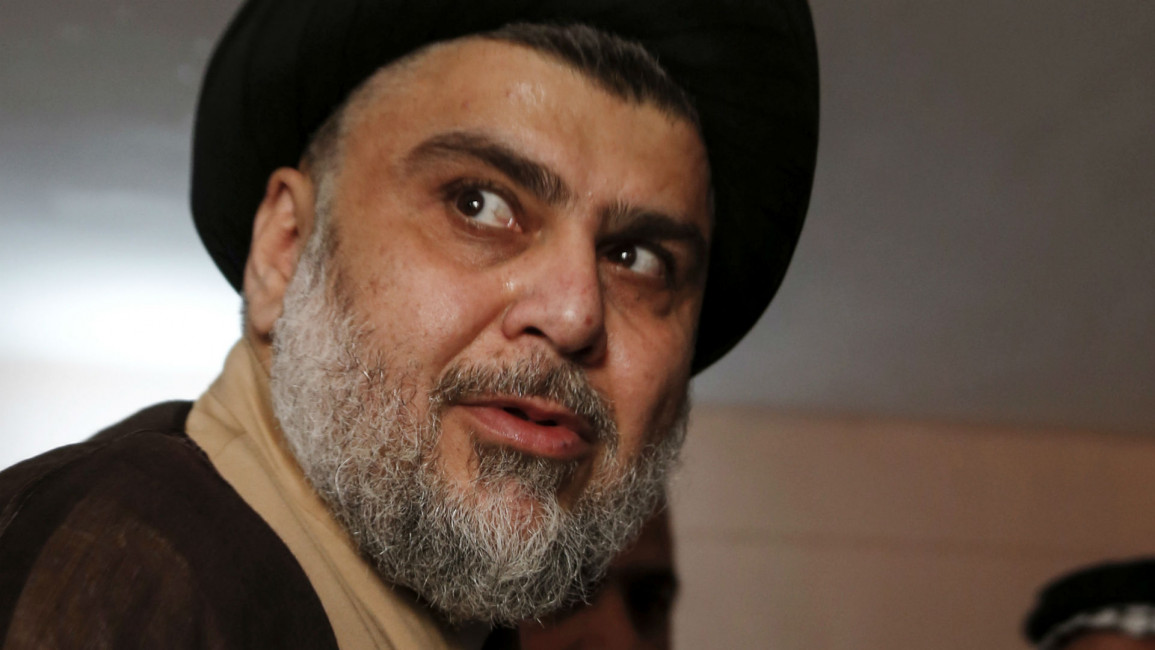Iraq cleric Sadr rejects Iran, US meddling in new government
Iraqi cleric Muqtada al-Sadr, whose coalition won the largest number of seats in parliamentary elections, has pledged to prevent foreign influence in the country's new government.
Sadr made the remarks in a statement on Monday, as he works to form an "inclusive" government without interference from Tehran and Washington.
"Iran is a neighbouring country and we are concerned with its interests. We hope it will not interfere in Iraqi affairs, as we reject anyone interfering in its affairs as well," Sadr said.
"As for the US, it is an occupying country that we never allow to interfere."
The Shia preacher's Marching Towards Reform alliance scooped 54 seats in an upset at May 12 polls to become the biggest bloc in Iraq's 329-seat parliament.
No single bloc won a majority in the vote, raising the prospect of weeks or even months of negotiations to agree on a government.
Sadr - whose militia battled US troops after the 2003 US-led invasion - faces a mammoth task to stitch together a working majority.
His demands for less foreign influence in Iraq have stirred tensions with authorities in Iran and US.
In a bid to jumpstart negotiations, Sadr last week met with Prime Minister Haider al-Abadi, whose group finished third, and Hadi al-Ameri, whose bloc of pro-Iranian former fighters came second.
After the meetings, the cleric urged "the formation of an inclusive government as quickly as possible" and called for a "nationwide political decision".
Last week, US officials reached out to members of Sadr's political bloc.
Sadr aide Dhiaa al-Asadi said there had been no direct talks between Sadr and the US, but intermediaries have opened up channels with his bloc.
Sadr - whose fighters were once accused of sectarian killings - has reinvented himself as an anti-graft crusader looking to bridge Iraqi society in alliance with secular leftists.
The election saw a record number of abstentions as Iraqis snubbed the corruption-tarnished elite that has dominated the country since the 2003 toppling of Saddam Hussein.
It is still far from certain that Sadr, who has ruled himself out of becoming the new premier, will be able to ensure his bloc comes to power.
Whoever emerges at the helm will face the huge job of rebuilding a country left shattered just five months after the defeat of the Islamic State group.



